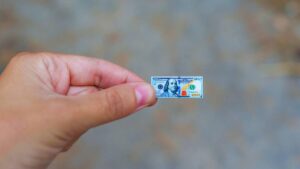PharmAust marches ahead to Phase 1 trials on COVID-19 and motor neurone disease

The Phase 1 human clinical trials of monepantel (MPL) for the treatment of COVID-19 and motor neurone disease show the versatility of the drug. Image: Getty
The Phase 1 human clinical trials of monepantel (MPL) for the treatment of COVID-19 and motor neurone disease show the versatility of the drug.
Clinical stage biotech company, PharmAust (ASX:PAA), is moving towards two Phase 1 human clinical trials on its lead compound, monepantel (MPL).
The two separate trials will study patients with Motor Neurone Disease (MND) and COVID-19, with start dates for both anticipated to be in May 2022.
GMP manufacturing of MPL tablets to be used in the trials is progressing well, and shipment is now expected at the end of December. This represents a three-week delay due to the detailed requirements for Phase 3 GMP goods.
The MPL compounds are being manufactured in collaboration with Syngene International and Catalent Pharma Solutions (NYSE: CTLT).
Production is currently being scaled up, with a demonstration batch for the smaller size tablets due to commence this week.
“We’re very pleased to partner with PharmAust to reach this milestone. The project had multiple and complex challenges including initial purity, chiral purity and the desired form,” said Dr Mahesh Bhalgat, chief operating officer of Syngene International.
“The team at Syngene worked as an extension of PharmAust’s internal scientific teams and created innovative, flexible and efficient approaches to achieve the desired product quality with improved purification parameters,” he said.
The COVID-19 trial
For the COVID-19 trial, PharmAust has successfully completed primary diligence on potential trial sites with six centres expressing interest.
The company is now preparing trial design, while engaging local contract research associates to assist running the trial sites using an appropriate monepantel study protocol.
Previously, PharmAust has demonstrated MPL’s antiviral activity in two independent laboratories in Australia in both primate and non-primate studies.
In July, the company announced that three independent laboratories have finished examining the effects of MPL on SARS-CoV2 infection, which is the causal agent of COVID-19 disease.
A recent breakthrough in the US on antiviral molnupiravir has also shone the spotlight on PharmAust’s own testing of MPL.
In October, US-based Merck and partner Ridgeback Biotherapeutics called for an early end to their testing of molnupiravir – a potential drug studied as a COVID-19 antiviral.
The testing was halted in order to seek regulatory emergency-use authorisation from the US FDA.
That study suggested that MPL could potentially work well together with remdesivir as a cocktail treatment.
“We believe that MPL may hopefully be one component of a cocktail (with remdesivir ) later on down the track, which might include remdesivir or molnupiravir, for example” Dr Mollard told Stockhead previously.
The Motor Neurone Disease (MND) trial
The Phase 1 trial of MND follows an ethics approval, and an announced $900k funding from AFL-linked charity, FightMND.
The study will look specifically into patients with Amyotrophic Lateral Sclerosis/ Motor Neurone Disease (ALS/MND) – a condition that became widely known following the affliction of renowned physicist, Stephen Hawking.
If effective, MPL would reduce the rate of degeneration and loss of motor neurons in the anterior horns and motor nuclei of the brainstem.
Pending success in the clinical trial, PharmAust expects that MPL will receive orphan drug designation by the FDA for the indication of MND.
This article was developed in collaboration with PharmAust, a Stockhead advertiser at the time of publishing.
This article does not constitute financial product advice. You should consider obtaining independent advice before making any financial decisions.
Related Topics

UNLOCK INSIGHTS
Discover the untold stories of emerging ASX stocks.
Daily news and expert analysis, it's free to subscribe.
By proceeding, you confirm you understand that we handle personal information in accordance with our Privacy Policy.








